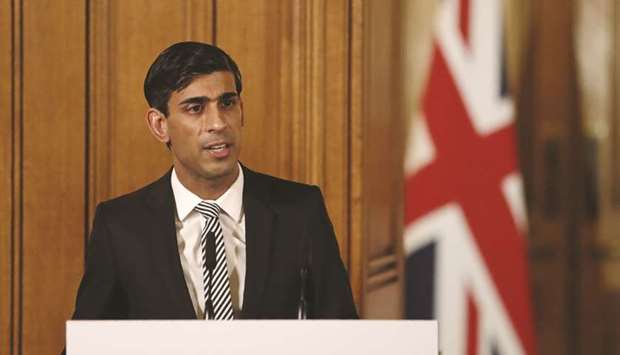Nobel laureates and former central bankers are hailing Prime Minister Boris Johnson’s economic response to the coronavirus as world class, although they expressed concern it could be undermined if the nation’s health policies prove less effective.
Columbia University Professor Joseph Stiglitz and Adam Posen of the Peterson Institute for International Economics are among those praising the UK’s reaction to the crisis.
Chancellor of the Exchequer Rishi Sunak’s pledge said to do “whatever it takes” to prop up UK businesses and jobs is likely to trigger more bond purchases by the Bank of England, according to Kallum Pickering, senior economist at Berenberg.
Britain’s economic rescue package is “much more equitable here than the measures the US administration has taken,” said Christopher Pissarides, whose work on labour markets saw him win the 2010 Nobel Prize for economics. “It’s also more generous.”
More than two weeks ago, the Bank of England delivered a surprise interest-rate cut, synchronised with the UK budget, in the first phase of what consistently seems like joined-up economic firefighting.
Since then, a total of four fiscal aid packages have been unveiled by Chancellor of the Exchequer Rishi Sunak, including a pledge that workers with jobs at risk will see up to 80% of their wages paid by the government, potentially costing at least £10bn ($12bn), while companies will also get tax holiday. In tandem, the central bank has delivered another rate cut, expanded bond purchases, and introduced schemes to help keep credit flowing.
The response is drawing favorable comparisons with elsewhere, such as the US, where the government is planning $2tn in spending and tax breaks to bolster the economy, including direct payments to households. While that preserves incomes, experts say Britain’s plan may prove better at saving jobs, potentially leading to a stronger recovery.
“The UK deserves credit for really reversing its austerity and being very ambitious and coherent,” said Posen, who was a financial crisis-era policymaker at the BoE. “The wish-list in terms of design, size, content and coordination — all is terrific.”
Half a million Britons have applied for state support payments over the course of just nine days, but the BoE still says it’s seeing early signs the government’s rescue package is preventing layoffs. The hope is that will prevent the violent spike in unemployment that appears to coming in the US, where more than 3mn filed jobless claims last week.
“Until we know about the medical side of the disease, and how long the different lockdowns and disruptions about getting to work will have to last, we’ve no idea how long these emergency programmes will need to continue,” former BoE policymaker Ian McCafferty told Bloomberg Television.
The UK health emergency remains the most pressing concern of all. Although the government has now imposed a lockdown, its initial reaction focused on preventative measures such as encouraging increased hand washing — an approach which jarred with the restrictions of movement imposed elsewhere in Europe and in Asia.
“They could, and maybe should be, criticised,” said Pissarides, who teaches at the London School of Economics. “They were slow — maybe by just a few days — but it might still make a difference.”
Stiglitz and Posen also have reservations about the health response, but were both outspoken in their praise for the economic policy approach. Stiglitz said he was “really pleased to see” the focus on keeping jobs.
“It’s important to keep people solvent, to tell the employer, keep the employee on and we’ll reimburse you,” he said. “That makes a lot of sense.”

Rishi Sunak, UK chancellor of the exchequer, speaks during a daily coronavirus briefing inside number 10 Downing Street in London.
